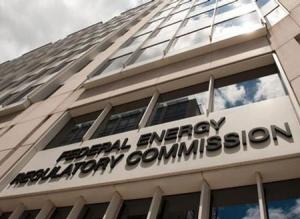Court Declines to Vacate FERC’s Mountain Valley Certificate

Explaining that it was statutorily proscribed from exercising initial judicial review of decisions entered by the Federal Energy Regulatory Commission (FERC), the U.S. District Court for the Western District of Virginia, Roanoke Division, has denied motions from several opponents of the Mountain Valley Pipeline for an order enjoining the pipeline developer from proceeding with actions in eminent domain against property owners whose lands would be traversed by the pipeline.
The petitioners, a group of 17 affected landowners, had asked the court to invalidate the certificate the FERC had awarded the pipeline last October, which certificate concomitantly bestowed upon the company the ability to seek to take needed parcels of land by eminent domain. In rejecting the requests, the district court pointed out that the Natural Gas Act (NGA) explicitly provides for any challenge to a final FERC order be taken to a federal circuit court of appeals once all requests for rehearing before the FERC itself have been exhausted. The Mountain Valley project will run more than 300 miles, from a supply source in West Virginia to Pittsylvania County, Virginia. It has proven to be highly controversial and has been hotly contested not only by affected landowners, but also by environmental advocacy groups. The numerous legal challenges to the project have produced a series of statelevel decisions by local water boards that are not always consistent, even when issued by the same agency.
In the end, however, upon the water quality control authorities in both Virginia and West Virginia giving final approvals to the Mountain Valley project, the complainants elected to file suit in the district court to stop the pipeline from initiating associated condemnation proceedings against the landowners. Their primary argument was that the FERC has no authority to oversee actions in eminent domain for the Mountain Valley facilities because the pipeline will not serve a true public purpose. Instead, they contended, the Mountain Valley Project had been proposed merely as a means for driving financial gain for an individual company.
Indeed, the lawsuit referred to the taking of private property for the project as a “government-sanctioned land grab.” But, stressing that it simply did not have jurisdiction in the matter, the district court did not reach the merits of the arguments. The court expounded that the NGA is very specific in identifying federal courts of appeal as the sole court to have authority to entertain challenges to final FERC orders. According to the district court, that “exclusivity clause” prevents district courts from ruling on appeals of FERC decisions. Thus, quoting the defendant pipeline’s position, the court concluded that it was “the wrong court at the wrong time” for addressing the landowners’ claims as to eminent domain. At the same time, though, the district court did agree to hear one aspect of the complaints, which pertained to allegations that certain survey personnel mapping out the pipeline’s path had trespassed and intruded on private property without authorization and had at times engaged in unlawful takings.
As an example, the court noted that the plaintiffs charged that some pipeline workers had illegally kept historical artifacts they came upon in the course of their surveys and had obtained soil and water samples without permission. The court said it would consider those claims at a later date. Orus Ashley Berkley et al. v. Mountain Valley Pipeline, LLC et al., Civil Action No. 7:17-cv-00357, Dec. 11, 2017 (W.D. Va.).
While the district court’s holding offers clear guidance that the plaintiffs could refile their suit in a federal appellate court, the complainants cannot do so at the present time, because the rehearing process before the FERC is not yet complete with regard to the certificate it issued to Mountain Valley Pipeline last October. Just two days after the district court entered its decision, the FERC released a socalled “tolling” order, which in essence gave it an indefinite period of time during which to review the petitions for rehearing that have been submitted vis-à-vis the Mountain Valley project. Re Mountain Valley Pipeline, LLC and Equitrans, L.P., Docket Nos. CP16-10-001, CP16-13- 001, Dec. 13, 2017 (F.E.R.C.).
Because no FERC ruling can be appealed to a federal circuit court unless it is final, and because the agency’s Mountain Valley decision will not be declared final until the rehearing process is complete, the affected landowners have been placed in legal limbo. That is, they are prevented from filing a court appeal until such time as the FERC rules on their rehearing requests, even as construction on the pipeline may commence without a final order.
Adding more uncertainty to the matter was a pronouncement by the FERC on December 21 that it intends to revisit its existing pipeline policy statement, which has been in effect since 1999. That policy outlines the standards and requirements that must be met by any planned interstate natural gas pipeline project in order to receive a certificate from the FERC. The commission stated that the energy landscape has changed dramatically in the nearly 20 years since the statement was last revised, making it advisable to review how the FERC should evaluate and assess pipeline certificate applications. The FERC’s announcement indicated that it had not yet settled on a definitive format for or scope of the review process.



